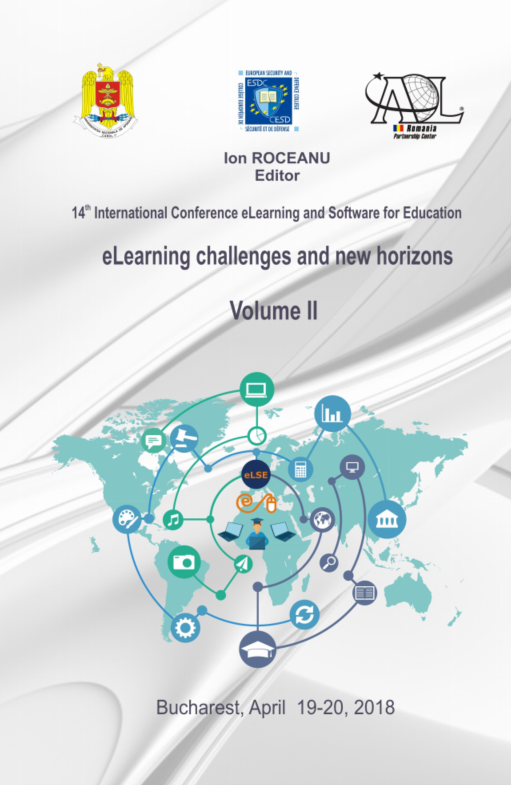Facilitating Students’ Transition from School to Work through the WWW Project’s e-Course
Facilitating Students’ Transition from School to Work through the WWW Project’s e-Course
Author(s): Anca Cristina COLIBABA, Irina Gheorghiu, Stefan COLIBABA, Cintia Colibaba, Ramona CIRSMARISubject(s): Social Sciences, Education
Published by: Carol I National Defence University Publishing House
Keywords: e-course design; state-of-the-art technology; teachers; young people; work;
Summary/Abstract: The article is based on the We Welcome Work (WWW) project, funded by the European Commission under the Erasmus+ KA2 VET Programme (Ref. no.: 2016-1-RO01-KA202-02471). The project meets the growing needs of high school students and young people who live in a very mobile environment, where time, education and employment are challenging issues. The supply of apprenticeship and traineeship places in the EU continues to be under-developed. A lack of workplace experience and the related skills and competences is one of the factors contributing to the "skills gap" in the EU today. The project intends to offer non-formal opportunities for young people to acquire employability, entrepreneurship and digital skills to support their transition from school to the world of work thus achieving a better skills match and career orientation. The article gives insights into the e-training and its resources designed within the project partnership. The online material equips teachers and schools councillors with interactive tools to tests and evaluate the students’ competences and skills and guide them based on their specific needs for their career. The focus of the project is on involvement of students in an interactive training session of apprenticeship, simulating various jobs situations in the form of animation problem-solving game. This will gain development of various competences: workplace skills, problem-solving, teamwork, foreign languages, IT and social media skills, communication and cultural skills, etc. The article presents the e-training, its methodology, objectives as well as its interactive and creative activities whose content and development benefit from state-of-the-art technology.
Journal: Conference proceedings of »eLearning and Software for Education« (eLSE)
- Issue Year: 14/2018
- Issue No: 02
- Page Range: 405-412
- Page Count: 8
- Language: English

